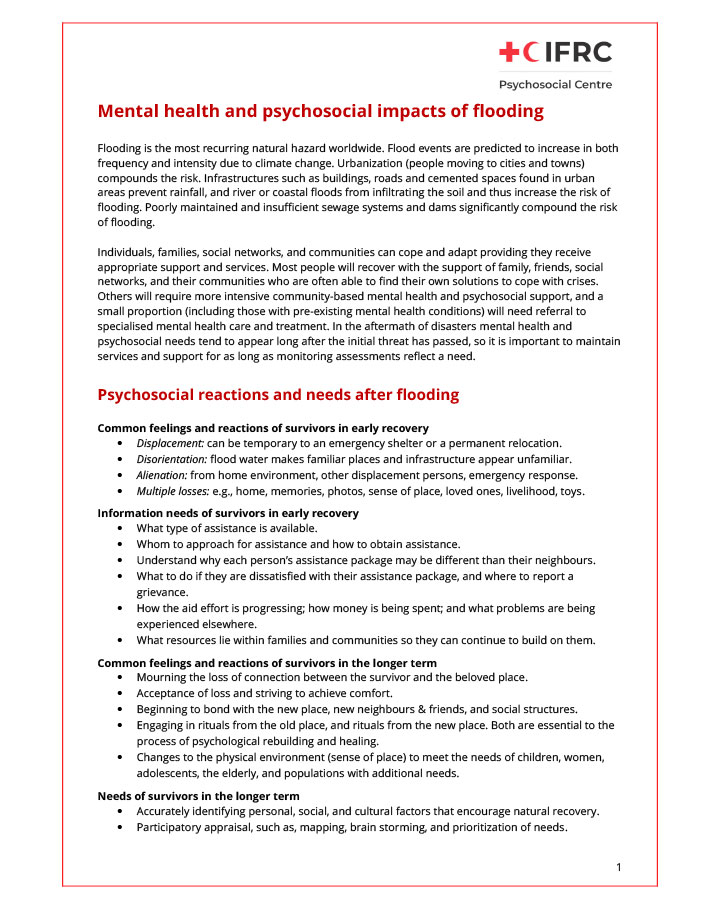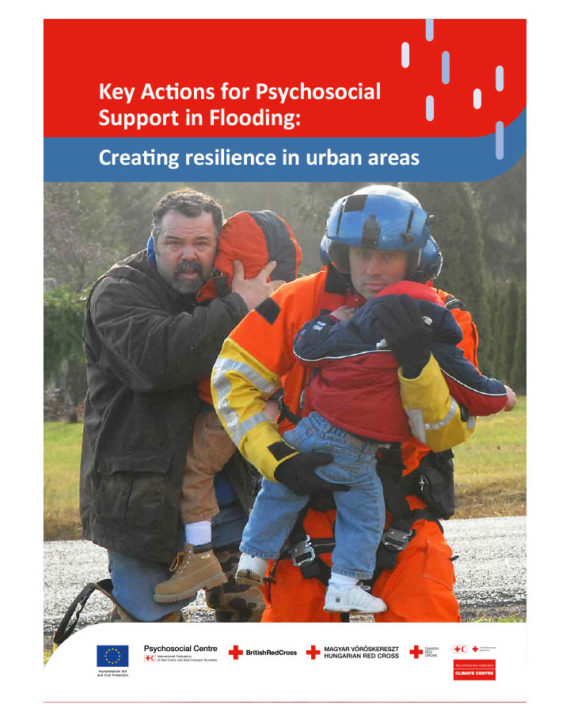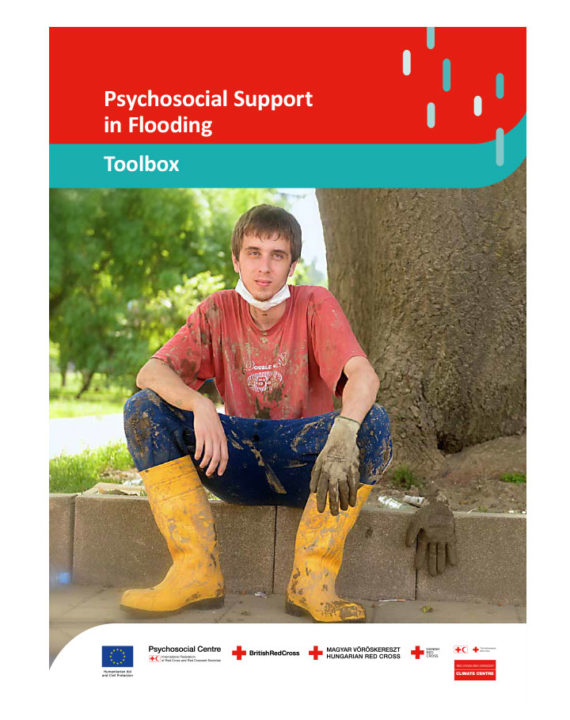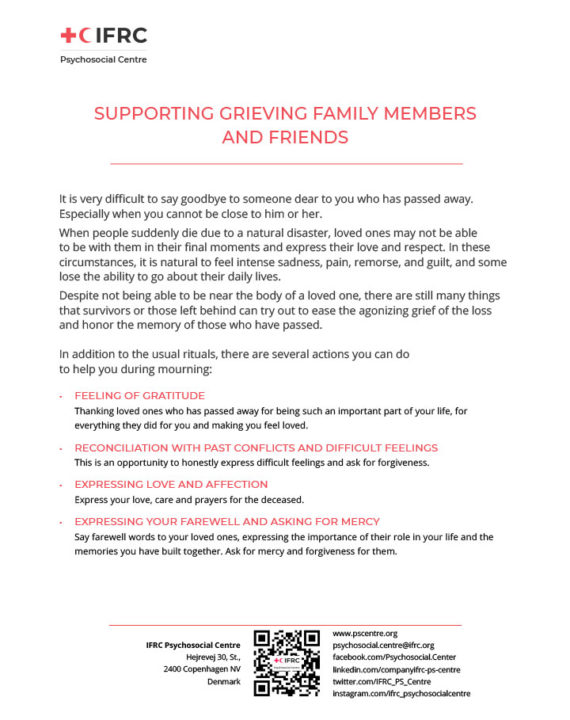Flooding is the most recurring natural hazard worldwide. Flood events are predicted to increase in both frequency and intensity due to climate change. This 2-pager can help MHPSS practitioners and first responders prepare for the psychosocial responses by people impacted by flooding.





